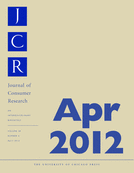A researcher and former faculty member at Tufts School of Medicine in Boston has been banned from working with animals for a year following repeated cases of abuse under his supervision, according to documents obtained by an animal-rights group.
In an Oct. 26, 2022, letter to the federal Office of Laboratory Animal Welfare, the university reported “serious and continuing noncompliance with” animal-welfare regulations. These breaches included “injections in mice via an unapproved route/location, failure to provide required analgesia, inadequate supportive care and monitoring, and failure to euthanize mice upon reaching the approved humane endpoints,” Tufts said.
When asked for his comments, the researcher “refuted most of the allegations and took no responsibility for his actions,” the university added.
Continue reading Exclusive: Former Tufts researcher suspended from animal work after abuse







